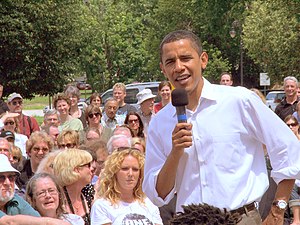Our goal had gone walkabout
On my travels, I found myself teaching systems thinking in a university which broke a large course into 25 student groups. A few people determined the curriculum and an army of people taught students who wrote a common examination.
I was shocked by the examination papers. Students rambled on tossing in whatever thoughts came to mind.
We sensibly had an interim examiners meeting and I voiced my concerns. Well, it seems that I was the one to have misunderstood the curriculum. The curriculum designers were trying to convey the idea that there are many perspectives on any issue. They didn’t see a common goal or direction as an essential part of any system.
I am cursed with an “open mind” so I hastened to the internet to double-check and the idea has hung around my mind ever since as unfinished business does.
3 misunderstandings about system goals
I’m afraid that systems do have common goals. That is entirely the point. But it seems that this is a point that is often misunderstood.
Some people think the system’s goal is their goal
No! There are still multiple perspectives. We can add the system as a virtual person and ask what is the system’s goal! We have the boss’ goal, we have the system, goal and we have each of our goals.
Some people think there is no common goal
It is true that the organization does not have a goal. An organization cannot think! When we say that the organization’s goal is X, we must ask who says that?
But we not only want to understand the multiplicity of goals but we also want to understand how the many goals come together and how the system goal morphs in response. We cannot ignore the system goal ~ or we do as a sailor might ignore the weather ~ at our peril.
Some people think goals are constant
They are ~ for a second. Goals morph as situations change. When we ignore the dynamic quality of goals, then we get mission creep. Conditions change and if we don’t stop to think about what we want, what we all want, we find ourselves doing too much of one thing and too little of another. A mess in other words. Goals are infinitely variable.
Articulating the morphing of goals in any group is what makes a leader
A leader understand the multiplicity of goals in a community and sees how are contradictions and conflicts, agreements and alliances come together to make us what we are – how the whole comes from the parts and affects them in turn.
A leader is a person who is able to articulate this dynamic mix so that we feel supported by the whole and essential to its well being. This is a tough call when a group is determined to quarrel or terrified by its destiny. The hall mark of a leader is that he or she looks for the common ground where we all belong and keeps looking.
Facilitating the agreement is the hallmark of the greatest leaders
Helping us find that common ground is the hallmark of the greatest leaders. We often doff our caps to leaders who were in the right place at the right time. They represent what is the best about ourselves and we throw them into the limelight to remind us of who we are and where we are going. In time, we choose a new leader because our direction has changed and we need new icon on our bows.
We remember these leaders because these were times that we felt great. The greatest leaders, though, help us identify the right questions. They know how to “bound” the group. They know how to focus our attention on the question that we must answer if we are to find the way forward and the place where we feel great.
That’s why it seems as if great leaders set goals. They set a boundary which focuses our attention on question-asking.
It is not the goal that is important, but our compulsion to find out how we should reach the goal.
Colin Powell once said “Leadership is about ‘Follow Me!. Even if it is only out of curiosity.”
Leadership is the art of engaging the imagination in the search for collective answers.
The system is important. With good leadership, we accept the system as a virtual person ~ a popular virtual person who we all want to look after and please.
Like this:
Like Loading...

